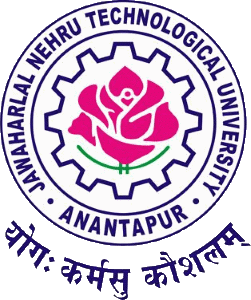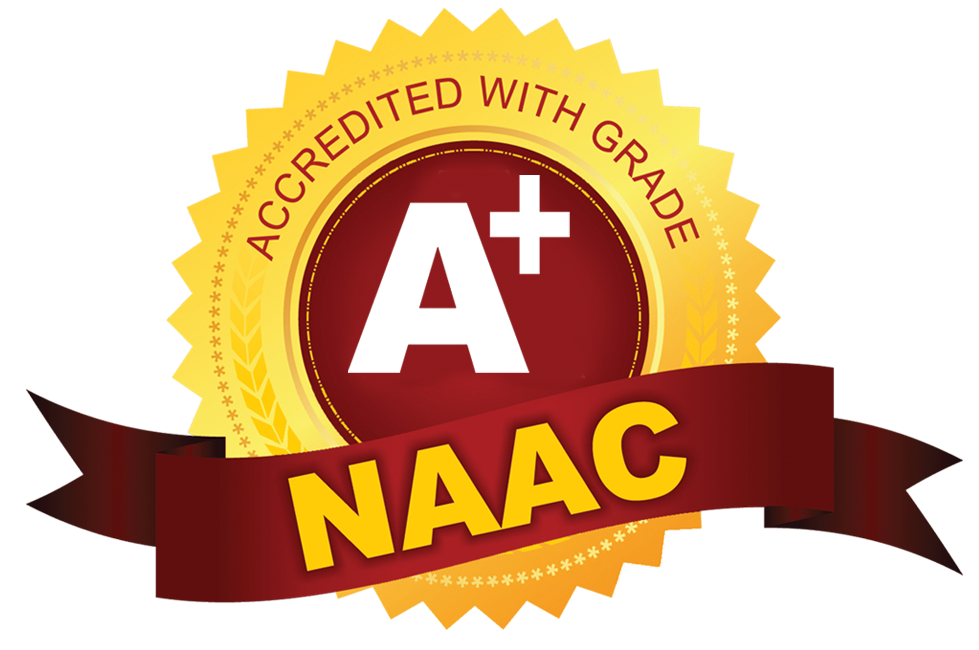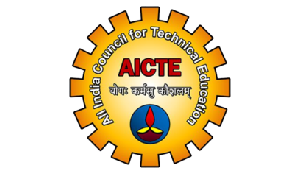CSE(AI) Department
Department of Computer Science and Engineering(AI)
/Lavanya.jpg)
Dr. M. Lavanya
HOD & ASSOCIATE PROFESSOR
MCA, M.Tech, Ph.D
Department Profile
The Department of Computer Science and Engineering (Artificial Intelligence) at Sri Venkateswara College of Engineering and Technology (SVCET) offers an undergraduate program in CSE(AI) with a focus on providing students with the knowledge and skills necessary to excel in the rapidly evolving field of Artificial Intelligence. The department aims to create a supportive and stimulating learning environment that fosters innovation, research, and industry collaborations.
Led by Dr. M. Lavanya, a highly experienced faculty member with expertise in Data Mining, Machine Learning, and Data Analytics, the department strives to provide students with a world-class education and prepare them for successful careers in AI.
The Department of Computer Science and Engineering (Artificial Intelligence) at SVCET is equipped with state-of-the-art infrastructure, including well-equipped laboratories, high-performance computing resources, and access to industry-standard software and tools. The department actively engages with the industry through guest lectures, industry visits, and collaborations with leading AI companies, providing students with valuable industry exposure and career opportunities.
Our Objectives
- To impart high-quality education: Provide students with a strong foundation in computer science fundamentals and advanced AI concepts, including machine learning, deep learning, natural language processing, and computer vision.
- To foster research and innovation: Encourage faculty and students to engage in cutting-edge research in AI, publish research papers, and participate in national and international conferences.
- To develop industry-ready professionals: Prepare graduates with the skills and knowledge demanded by the AI industry through internships, industry collaborations, and hands-on projects.
- To promote ethical and responsible AI: Emphasize the ethical implications of AI technologies and equip students with the knowledge and tools to address issues like bias, fairness, and privacy.
- To foster a collaborative learning environment: Create a vibrant and inclusive community that encourages student interaction, faculty mentorship, and collaborative research projects.
- To stay at the forefront of AI advancements: Continuously update the curriculum and research areas to reflect the latest developments in AI and ensure that students are equipped with the most up-to-date knowledge and skills.
Department Strength
- ✔ Strong Academic Foundation
- ✔ Experienced and Qualified Faculty
- ✔ Cutting-Edge Curriculum
- ✔ State-of-the-Art Infrastructure
- ✔ Industry Collaboration
- ✔ Focus on Research and Innovation
- ✔ Student-Centric Approach
Courses Offered
| Level | Course | Intake |
|---|---|---|
| Under Graduate | CSE (Artificial Intelligence) B.Tech | 240 |
Vision and Mission
🎯 Vision
To develop as a Centre of Excellence in the diverse areas of Computer Sciences through teaching, innovation, research and collaboration there by addressing the challenges of emerging needs.
🚀 Mission
-
Produce globally competent professionals in through delivering knowledge in emerging technologies of computer science to solve real world problems.
-
Develop domain and research skills that enable them to undertake challenging careers and pursue Higher Education
-
Imbibe morals and values among students for developing a strong professional etiquette and with a zeal for continuous learning.
-
Create an ecosystem for faculty to develop further in domain competence, research aptitude and pedagogical skills
-
Develop infrastructure and facilities for different academic and research activities
Program Outcomes
Program Educational Objectives (PEOs) under R23 Regulations
On successful completion of the Program, the graduates of B. Tech. CSE(AI) Program graduates will be able to:
| PEO Code | Outcome |
|---|---|
| PEO-1 | To be able to solve wide range of computing related problems to cater to the needs of industry and society. |
| PEO-2 | Enable students to build intelligent machines and applications with a cutting-edge combination of machine learning, analytics and visualization |
| PEO-3 | Produce graduates having professional competence through life-long learning such as advanced degrees, professional skills and other professional activities related globally to engineering & society |
Program Specific Outcomes (PSOs) under R23 Regulations
On successful completion of the Program, the graduates of B. Tech. CSE(AI) Program graduates will be able to:
| PSO Code | Outcome |
|---|---|
| PSO-1 | Should have an ability to apply technical knowledge and usage of modern hardware and software tools related AI for solving real world problems. |
| PEO-2 | Should have the capability to develop many successful applications based on machine learning methods, AI methods in different fields, including neural networks, signal processing and data mining |
CSE(AI) Faculty List
|
S.No |
Name of the Faculty |
Designation |
Qualification |
Experience (in Years) |
|
1. |
DR. CHEVULA NAGACHANDRA |
PROFESSOR |
M.Tech, Ph.D |
18 |
|
2. |
DR. SACHIN KUMAR |
PROFESSOR |
M.Tech, Ph.D |
11.2 |
|
3. |
DR. MOHANRAJ RAMAMOORTHY |
ASSOCIATE PROFESSOR |
M.Tech, Ph.D |
19.6 |
|
4. |
DR. GAJENDRA KUMAR |
ASSOCIATE PROFESSOR |
M.Tech, Ph.D |
12.4 |
|
5. |
DR.G. KAVITHA |
ASSOCIATE PROFESSOR |
MCA, Ph.D |
10.11 |
|
6. |
MR.CHANDIRIAN KRISHNAMURTHY |
ASSOCIATE PROFESSOR |
M.Tech |
12 |
|
7. |
MR. NAVEEN RAJU |
ASST PROFESSOR |
M.Tech |
6.9 |
|
8. |
MR. EDWARD RUBAN JABEZ |
ASST PROFESSOR |
M.Tech |
7 |
|
9. |
MR. VIJAYAKUMAR MUNISWAMY |
ASST PROFESSOR |
M.Tech |
8.3 |
|
10. |
MR. YUGARAJ MOOKKANDI |
ASST PROFESSOR |
M.Tech |
6.2 |
|
11. |
MRS. VIDHYA RAJARAM |
ASST PROFESSOR |
M.Tech |
5.4 |
|
12. |
MRS. DIVYA PRIYA |
ASST PROFESSOR |
M.Tech |
6.6 |
|
13. |
MR. MUNAGALA JAGADEESH |
ASST PROFESSOR |
M.Tech |
7.9 |
|
14. |
MS. SHURUTHI DEVADHAS |
ASST PROFESSOR |
M.Tech |
5 |
|
15. |
MRS. LENEENA AMARI |
ASST PROFESSOR |
M.Tech |
3 |
|
16. |
MR. GUNASEKHAR SANGAPU |
ASST PROFESSOR |
M.Tech |
7 |
|
17. |
MR. HAREESHKUMAR SANDALA |
ASST PROFESSOR |
M.Tech |
5.7 |
|
18. |
MR. RAJESH EDURU |
ASST PROFESSOR |
M.Tech |
4 |
Journal Publications:
1 Dr. R. Mohanraj, Associate Professor, Sri Venkateswara College and Technology, has published a paper entitled on “Fuzzy Heuristics in Content Based Image Retrieval,” in International Journal of Engineering Research and Science & Technology ISSN : 2319-5991,Vol. 21, Issue 1, pp171-178, 2025
2 Dr.R. Mohanraj, Associate Professor, Sri Venkateswara College and Technology, has published a paper entitled on “A real-time environmental air pollution predictor model using dense deep learning approach in IoT infrastructure,” Global NEST Journal, Vol 26, No 3,pp 1-16, 2024.
3 Dr. R. Mohanraj, Associate Professor, Sri Venkateswara College and Technology, has published a paper entitled on “Securing the Digital Commerce Spectrum and Cyber Security Strategies for Web, E-commerce, M-commerce, and E-mail Security,” in Journal of Cyber security and Information Management (JCIM) Vol. 14, No. 01, PP. 34-49, 2024
Conference Publications:
1 Dr. R. Mohan Raj, Associate Professor, dept. of CSE(AI), Sri Venkateswara College and Technology, has presented and published a paper on “The artificial intelligence for NGO” in the 1st International Conference on Digital Transformation & Sustainability of Business (ICDTSB), eISBN: 9781003606185, held on March 29th -30th , 2024
2Dr. R. Mohanraj, Associate Professor, dept. of CSE(AI), Sri Venkateswara College and Technology, has presented and published a paper on “Fuzzy Heuristics in content based Image Retrieval” in the International conference on Innovations and Recent Trends in Computer Science(ICIRTCS-24) organized by department of CSE, St. Matrin’s Engineering College, Dhulapally, Securendrabad, India, 17th -18th, December,2024
3Dr. G. Kavitha, Associate Professor, dept. of CSE(AI), Sri Venkateswara College and Technology, has presented and published a paper on entitled “FOOD CALORY ESTIMATION AND BMI PREDICTION USING ML” is accepted in International Conference on Computational Intelligence, Emerging Technologies, and Smart Systems at RK University, Rajkot, India, on March 28th, 2025.
Book Chapter Publications:
1 Dr. R. Mohanraj, Associate Professor, Sri Venkateswara College and Technology, has published a book chapter in Digital Transformation and Sustainability of Business, Taylor & Francis Group, CPR Press entitled “The artificial intelligence for NGO,” PP: 92|4 pages, ISBN9781003606185, 2025.
Data will be updated soon!
Data Analytics Using R Programming Laboratory
Objectives
- Understand R Programming Basics – Learn the fundamentals of R, including syntax, data types, and basic operations.
- Data Manipulation & Cleaning – Use packages like dplyr and tidyverse to manipulate and clean datasets.
- Data Visualization – Develop skills in visualizing data using ggplot2, base R, and other libraries.
- Statistical Analysis – Perform statistical operations such as hypothesis testing, regression, and correlation.
- Machine Learning Basics – Implement basic machine learning algorithms like linear regression, decision trees, and clustering in R.
- Time Series Analysis – Analyze time series data using packages like forecast and TSA.
- Exploratory Data Analysis (EDA) – Learn to summarize and interpret datasets using various statistical techniques.
- Big Data Handling – Work with large datasets using data.table, sparklyr, and other big data tools in R.
- Text Mining & NLP – Perform basic text analysis using tm and tidytext packages.
- Project Work – Apply concepts learned in a real-world dataset to derive insights.
Outcomes
Upon successful completion of this lab, students will be able to:
- Write and execute R scripts for data analysis.
- Perform data cleaning, transformation, and wrangling efficiently.
- Create meaningful visualizations to interpret data.
- Apply statistical techniques to draw inferences from datasets.
- Implement predictive modeling using machine learning algorithms.
- Work with real-world datasets and conduct exploratory data analysis (EDA).
- Handle time series data and perform forecasting.
- Utilize R for text analytics and natural language processing.
- Optimize performance when working with large datasets.
- Develop a mini-project using R for data analytics applications.
DEEP LEARNING Laboratory
Objectives
- Understand Neural Networks – Learn the fundamentals of artificial neural networks (ANNs), perceptrons, and activation functions.
- Implement Deep Learning Models – Develop and train deep learning models using frameworks like TensorFlow and PyTorch.
- Work with Different Architectures – Explore different deep learning architectures such as CNNs, RNNs, LSTMs, and GANs.
- Data Preprocessing for Deep Learning – Perform data augmentation, normalization, and handling of large-scale datasets.
- Model Training and Optimization – Learn techniques for optimizing deep learning models, including loss functions, gradient descent, and backpropagation.
- Hyperparameter Tuning – Experiment with hyperparameters like learning rate, batch size, and number of layers for better model performance.
- Image Classification & Object Detection – Implement and evaluate models for computer vision tasks using convolutional neural networks (CNNs).
- Natural Language Processing (NLP) – Apply deep learning models for text-based tasks such as sentiment analysis, text generation, and machine translation.
- Reinforcement Learning Basics – Understand and implement reinforcement learning algorithms.
- Deploy Deep Learning Models – Learn to deploy trained models using APIs, cloud platforms, or embedded systems.
Outcomes
Upon successful completion of this lab, students will be able to:
- Implement Basic Neural Networks – Design and implement simple feedforward and deep neural networks.
- Work with Deep Learning Frameworks – Utilize TensorFlow, Keras, and PyTorch for developing deep learning models.
- Preprocess and Handle Large Datasets – Perform data cleaning, augmentation, and normalization techniques for deep learning applications.
- Train and Optimize Deep Learning Models – Apply optimization techniques like gradient descent, backpropagation, and batch normalization to improve model performance.
- Develop Computer Vision Applications – Build and train Convolutional Neural Networks (CNNs) for tasks like image classification and object detection.
- Apply Deep Learning in NLP – Use Recurrent Neural Networks (RNNs), LSTMs, and Transformers for tasks such as text classification and sentiment analysis.
- Experiment with Advanced Architectures – Implement and evaluate deep learning architectures like GANs, Autoencoders, and Transfer Learning models.
- Fine-tune Hyperparameters – Optimize deep learning models using techniques like learning rate tuning, dropout, and early stopping.
- Deploy Deep Learning Models – Deploy trained models in real-world applications using cloud platforms, APIs, or embedded systems.
- Work on Real-World Projects – Apply deep learning concepts to solve practical problems in domains like healthcare, finance, and autonomous systems.
C Programming and Data Structures Laboratory
Objectives
- Understand the Basics of C Programming – Learn fundamental concepts such as data types, operators, control structures, and functions.
- Develop Problem-Solving Skills – Implement algorithms and logic to solve computational problems using C.
- Work with Arrays and Pointers – Gain proficiency in handling arrays, pointers, and dynamic memory allocation.
- Implement String Manipulation Techniques – Perform operations such as searching, sorting, and pattern matching on strings.
- Explore Data Structures – Implement and analyze fundamental data structures such as stacks, queues, linked lists, trees, and graphs.
- Understand Recursion and Iteration – Apply recursive and iterative approaches to problem-solving.
- Perform File Handling Operations – Read from and write to files using C for data processing.
- Analyze Algorithm Efficiency – Understand time and space complexity for different data structures and algorithms.
- Implement Sorting and Searching Algorithms – Apply algorithms like Bubble Sort, Quick Sort, Merge Sort, and Binary Search.
- Develop Real-World Applications – Build small applications using C and data structures to reinforce learning.
Outcomes
Upon successful completion of this lab, students will be able to:
- Write Efficient C Programs – Develop structured and optimized code using C programming principles.
- Apply Logical Thinking for Problem-Solving – Use programming constructs effectively to solve real-world problems.
- Manipulate Arrays and Pointers – Perform efficient data processing using arrays, pointers, and memory management.
- Implement and Analyze Data Structures – Construct and evaluate different data structures for various applications.
- Use Recursion Effectively – Solve problems using recursive functions where applicable.
- Perform File Handling Operations – Read, write, and manipulate data stored in files using C.
- Optimize Code for Performance – Evaluate and improve the efficiency of algorithms using complexity analysis.
- Design and Implement Sorting and Searching Algorithms – Apply different sorting and searching techniques based on problem requirements.
- Develop Small-Scale Projects – Create real-world applications integrating C programming with data structures.
- Gain Practical Experience for Further Studies – Establish a strong foundation in C and data structures, which is essential for advanced programming and software development.
Problem Solving and Programming Using Python Lab Laboratory
Objectives
- Understand Python Basics – Learn fundamental concepts such as syntax, variables, data types, and operators.
- Develop Problem-Solving Skills – Use Python to implement logic-based solutions for computational problems.
- Work with Control Structures – Utilize conditional statements, loops, and functions for efficient programming.
- Manipulate Data Structures – Implement lists, tuples, sets, and dictionaries for data storage and processing.
- Apply Functions and Modules – Write modular programs using functions, lambda expressions, and built-in libraries.
- Perform File Handling Operations – Read from and write to files for data storage and retrieval.
- Work with Object-Oriented Programming (OOP) – Implement classes and objects to solve real-world problems.
- Use Exception Handling – Write robust programs by managing errors and exceptions effectively.
- Explore Libraries for Data Analysis – Utilize NumPy, Pandas, and Matplotlib for basic data processing and visualization.
- Develop Small-Scale Applications – Build mini-projects to reinforce programming concepts.
Outcomes
Upon successful completion of this lab, students will be able to:
- Write and Execute Python Programs – Develop structured and efficient Python code.
- Implement Logical Solutions to Problems – Apply problem-solving strategies using Python.
- Use Control Structures Effectively – Implement loops, conditionals, and functions for program flow control.
- Handle Data Structures Efficiently – Store and manipulate data using lists, tuples, dictionaries, and sets.
- Develop Modular and Reusable Code – Use functions and modules to improve code reusability and maintainability.
- Perform File Operations – Read, write, and manipulate files for data processing applications.
- Apply Object-Oriented Programming Concepts – Design and implement programs using OOP principles.
- Handle Exceptions Gracefully – Use exception handling mechanisms to write error-free programs.
- Utilize Python Libraries for Data Analysis – Work with NumPy, Pandas, and Matplotlib for basic data science tasks.
- Create Real-World Applications – Develop Python-based mini-projects demonstrating problem-solving skills.
Artificial Intelligence and Machine Learning Laboratory
Objectives
- Understand AI and ML Fundamentals – Learn the core concepts of artificial intelligence and machine learning.
- Implement Basic AI Algorithms – Develop AI techniques such as search algorithms, game playing, and knowledge representation.
- Work with Machine Learning Models – Implement supervised and unsupervised learning models using Python libraries like Scikit-Learn and TensorFlow.
- Perform Data Preprocessing – Clean, transform, and prepare datasets for training ML models.
- Train and Evaluate ML Models – Use metrics such as accuracy, precision, recall, and F1-score to assess model performance.
- Apply Feature Engineering Techniques – Optimize datasets by selecting and transforming features for better model performance.
- Explore Neural Networks and Deep Learning – Understand and implement artificial neural networks (ANNs) and deep learning models using TensorFlow/Keras.
- Develop AI-Based Solutions – Solve real-world problems using AI techniques like NLP, computer vision, and reinforcement learning.
- Work with Big Data and Cloud AI Tools – Use cloud platforms and big data tools for scalable AI and ML applications.
- Deploy ML Models – Learn to deploy trained ML models as web applications or APIs for practical use.
Outcomes
Upon successful completion of this lab, students will be able to:
- Implement AI Search Algorithms – Develop AI solutions using informed and uninformed search techniques.
- Build and Evaluate Machine Learning Models – Apply classification, regression, clustering, and dimensionality reduction techniques.
- Handle and Preprocess Large Datasets – Clean and prepare raw data for effective ML model training.
- Apply Supervised and Unsupervised Learning – Implement models like decision trees, SVMs, k-means clustering, and principal component analysis (PCA).
- Develop Neural Networks for Deep Learning – Train and optimize deep learning models using frameworks like TensorFlow and PyTorch.
- Analyze Model Performance – Use performance evaluation metrics to compare and improve ML models.
- Implement Natural Language Processing (NLP) – Apply AI for text processing tasks such as sentiment analysis and text classification.
- Work with Computer Vision Techniques – Implement image classification and object detection using CNNs.
- Deploy ML Models in Real-World Applications – Host and integrate trained models into web or mobile applications.
- Build AI and ML-Based Projects – Solve domain-specific problems using AI and ML methodologies.
Syllabus Downloads
B.Tech R23 CSE(AI) Detailed Syllabus
Click below to download the syllabus for B.Tech R23 CSE(AI) Detailed
Download SyllabusB.Tech R20 CSE(AI) Detailed Syllabus
Click below to download the syllabus for B.Tech R20 CSE(AI) Detailed
Download SyllabusDepartment Association
INCREDIBLE INTELLIGENCE DEPARTMENT ASSOCIATION TEAM (IIDA)
| S.No. | Name | Designation |
|
1 |
Mr. L. Karthikeyan |
FACULTY ADVISOR |
|
2 |
Mr. G. Akash 21781A3349 |
PRESIDENT |
|
3 |
Mr. J. Venkata Subbaiah 22781A3343 |
VICE PRESIDENT |
|
4 |
Mr. C. Sharan Sai 23781A3326 |
SECRETARY |
|
5 |
Mr. A. Charan 23781A3102 |
JOINT SECRETARY |
|
6 |
Mr. Gokul Sai 23785A3104 |
STUDENT TREASURER |
|
7 |
Mr. S. Jamshid 21781A33E2 |
STUDENT EVENT ORGANIZER |
|
8 |
Mr. Naveen 22781A33 |
STUDENT EVENT ORGANIZER |
|
9 |
Mr. Muneeswar 22781A33 |
STUDENT EVENT ORGANIZER |
|
10 |
Mr. V. S. Revanth(CSM) 23781A33G7 |
STUDENT ORGANIZER |
|
11 |
Ms. T. Vedhavathi 23781A33G0 |
STUDENT ORGANIZER |
|
12 |
Ms. P. Nagathanusha 23781A3139 |
STUDENT ORGANIZER |
|
13 |
Ms. K. Deepika 23781A3373 |
STUDENT ORGANIZER |
|
14 |
Ms. C. Sneha 22781A3332 |
STUDENT ORGANIZER |
|
15 |
Ms. T. Charitha Reddy 22781A33D1 |
STUDENT ORGANIZER |
|
16 |
Ms. N. Jaya Lakshmi 22781A3128 |
STUDENT ORGANIZER |
Data will be updated soon!
Data will be updated soon!
Data will be updated soon!
Latest Events
Academic year 2024-2025 : Events Organized:
|
S.No |
Title |
Name of the Event: Guest Lecture/Workshop/Training Programme |
Resource Person |
Period and Duration |
|
1 |
One Week Workshop on “Advanced Deep Learning Techniques with Real Time Applications |
Workshop |
Mr. Jai Ganesh Suresh. Senior AI Architect Lead, Valeo India Pvt. Ltd, Mr. U. Ravindran, Dr. K. Nandha Kumar, Dr. R. Mohan Raj, and Dr. G. Kavitha from CSE allied branches |
23-04-2025 to 28-04-2025 |
|
2 |
Deep Learning Techniques for Image Processing -real Time Application |
Expert Lecture |
Dr. G. N Vivekananda, Professor, VIT University |
9/25/2024 |
|
3 |
Advanced data Structures for Real Time Applications |
Skill oriented Program |
Mr. A. Rangaraj, Associate Professor, Dept. of MCA |
02-09-2024 |
|
4 |
Institutional Benchmarking and quality Improvement |
Guest Lecture |
Dr. Dharmendra Singh Rajput, professor, VIT University, Vellore |
25-01-2025 |
|
5 |
Embedded System using MATLAB |
Workshop |
Dr. J. Satheesh Kumar, Associate Professor, Dept. of ECE, SVCET |
27-2-2025 to 28-2-2025 |
|
6 |
IPR for Engineers and Technologists: Safeguarding Innovative Creations |
Expert Lecture |
Dr. Ramalingam, Assistant Professor, VIT University, Vellore |
5-03-2025 |
Academic year 2024-2025 : Workshop/Training Programme/FDP/ Attended:
|
S.No |
Name of the Faculty |
Name of the Event: Lecture/Workshop/Training Programme/FDP/Conferences |
Oranganized by |
Period (From date-To Date Duration) |
Duration |
|
1 |
Dr. M. Lavanya |
Modern Cyber Security with AI&ML |
Sri Venkateswara College of Engineering and Technology |
27/03/2025 |
31/03/2025 |
|
2 |
Dr. G. Kavitha |
Modern Cyber Security with AI&ML |
Sri Venkateswara College of Engineering and Technology |
27/03/2025 |
31/03/2025 |
|
3 |
Mr K Anjaneyulu |
Instructional Design and Delivery Systems |
Sri Venkateswara College of Engineering and Technology |
12/08/2024 |
17/08/2024 |
|
4 |
Dr. M. Lavanya |
Effective Analysis of Mental Health Using AI and Machine Learning in Social Media Analytics |
Sri Venkateswara College of Engineering and Technology |
28/03/2025 |
29/03/2025.
|
|
5 |
Dr. G. Kavitha |
Food Calaory Estimation and BMI Prediction Using ML |
Sri Venkateswara College of Engineering and Technology |
28/03/2025 |
29/03/2025 |
|
6 |
Dr. M. Lavanya |
Advanced Applications of AI in Research & Innovations |
Sri Venkateswara College of Engineering and Technology |
24/03/2025 |
28/03/2025 |
|
7 |
Dr. K. Nandha Kumar |
Advanced Applications of AI in Research & Innovations |
Sri Venkateswara College of Engineering and Technology |
24/03/2025 |
28/03/2025 |
|
8 |
Dr. R. Mohanraj |
Advanced Applications of AI in Research & Innovations |
Sri Venkateswara College of Engineering and Technology |
24/03/2025 |
28/03/2025 |
|
9 |
Dr. G. Kavitha |
Advanced Applications of AI in Research & Innovations |
Sri Venkateswara College of Engineering and Technology |
24/03/2025 |
28/03/2025 |
|
10 |
Ms. D. Gayathri |
Advanced Applications of AI in Research & Innovations |
Sri Venkateswara College of Engineering and Technology |
24/03/2025 |
28/03/2025 |
|
11 |
Ms. D. Shruthi |
Advanced Applications of AI in Research & Innovations |
Sri Venkateswara College of Engineering and Technology |
24/03/2025 |
28/03/2025 |
|
12 |
Ms. T. Princess Raichel |
Advanced Applications of AI in Research & Innovations |
Sri Venkateswara College of Engineering and Technology |
24/03/2025 |
28/03/2025 |
|
13 |
Mr. U. Ravindran |
Advanced Applications of AI in Research & Innovations |
Sri Venkateswara College of Engineering and Technology |
24/03/2025 |
28/03/2025 |
|
14 |
Dr. M. Lavanya |
GEN AI Tools and Techniques |
Sri Venkateswara College of Engineering and Technology |
11/11/2024 |
16/11/2024 |
|
15 |
Ms. D. Gayathri |
Artificial Intelligence-Soft Computing |
Sri Venkateswara College of Engineering and Technology |
9/12/2024 |
14/12/2024 |
|
16 |
Ms. D. Gayathri |
GEN AI Tools and Techniques |
Sri Venkateswara College of Engineering and Technology |
11/11/2024 |
16/11/2024.
|
|
17 |
Ms. D. Gayathri |
FDP on Cloud Architect |
Sri Venkateswara College of Engineering and Technology |
18/11/2024 |
22/11/2024 |
|
18 |
Mr. U. Ravindran |
OpenCV for Image and Video Processing Applications |
Sri Venkateswara College of Engineering and Technology |
22/07/2024 |
26/07/2024 |
|
19 |
Dr. R. Mohanraj |
OpenCV for Image and Video Processing Applications |
Sri Venkateswara College of Engineering and Technology |
22/07/2024 |
26/07/2024 |
|
20 |
Dr. K. Nandha Kumar |
The power of Trio: Communication soft skills and 21st century competencies |
Sri Venkateswara College of Engineering and Technology |
13/09/2024 |
|
|
21 |
Dr. K. Nandha Kumar |
Gen-AI and Prompt Engineering Using Microsoft Co-Pilot |
Sri Venkateswara College of Engineering and Technology |
16/09/2024 |
20/09/2024 |
|
22 |
Dr. K. NandhaKumar |
International Faculty Development Program on Project Excellence Guide: Digital Marketing |
Sri Venkateswara College of Engineering and Technology |
21/10/2024 |
25/10/2024 |
|
23 |
Dr. K. NandhaKumar |
AI TOOLS |
Sri Venkateswara College of Engineering and Technology |
17/02/2025 |
21/02/2025 |
|
24 |
Dr. G. Kavitha |
Instructional Design and Delivery Systems |
Sri Venkateswara College of Engineering and Technology |
12/08/2024 |
17/08/2024 |
|
25 |
Dr. R. Mohanraj |
Instructional Design and Delivery Systems |
Sri Venkateswara College of Engineering and Technology |
12.08.2024 |
17.08.2024 |
Data will be updated soon!
Contact Details
/Lavanya.jpg)

/rprograming.jpg)
/deep-learning.jpg)
/cprograming.jpg)
/pythonlab.jpg)
/pythonlab1.jpg)
/ailab.jpg)
/dept-association.jpg)
/dept-association1.jpg)
/dept-association2.jpg)
/dept-association3.jpg)
/dept-association4.jpg)
/dept-association5.jpg)









